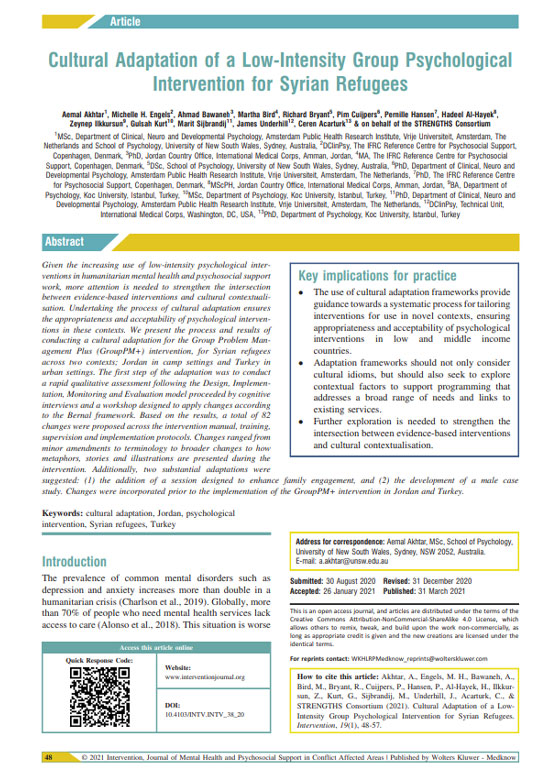In this episode of Heartbeat of Humanity, technical advisor at the IFRC Psychosocial Centre Sarah Harrison interviews Dr. Michelle Engels, also a technical advisor at the IFRC Psychosocial Centre. This episode explores the process behind the cultural adaptation of the Group Problem Management Plus (Group PM+) intervention for Syrian refugees in Jordan and Turkey.
This episode is part of the miniseries on the potentially scalable psychological intervention called Problem Management Plus (PM+). This podcast miniseries has been released to time with the recent Intervention Journal special edition on scalable psychological interventions to which several IFRC Psychosocial Centre staff contributed with articles based on recent research and activities. Past episodes in this miniseries has been with Colombian Red Cross, recorded in Spanish, and an episode on adapting PM+ training to an online format.
Problem management plus (PM+) is one of the approaches that falls within the broad category of low intensity psychological interventions, also known as potentially scalable psychological intervention. It was developed by WHO, and tested with partners in Pakistan, Nepal and Kenya. It comprises of three main components and is grounded in cognitive behavioral therapy, or CPT, which is one of the approaches under psychology. The components are stress management, behavioral changes and strengthening social support. It consists of five constructed sessions that can be facilitated with an individual, as a one-on-one session, and with a group, called group problem management plus, with an optional follow-up session some weeks later.
The PM+ intervention is aimed to be provided by a trained helper or a facilitator, who may not necessarily have a formal mental health or psychosocial support background. PM+ helpers or facilitators should be supervised and mentored by a psychologist or a psychotherapist. PM+ was developed to help people with depression, anxiety and stress-related symptoms, which also includes their treatment, and it can be applied to improve aspects of mental health and psychosocial wellbeing, no matter how severe symptoms are.
Listen to the podcast here or subscribe on Apple Podcast, Spotify, Google Podcast or wherever you find your podcasts.

